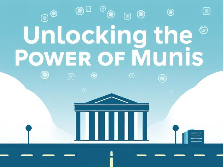
The Devalencia Dilemma: Why Your Words Are Losing Power (And How to Fight Back)
Devalencia: When Words Stop Meaning What They Used To (And Why It Matters More Than Ever)
Remember that feeling when a truly powerful word sent shivers down your spine? When “love,” “crisis,” or “genius” carried undeniable weight? Fast forward to today, scrolling through endless feeds, and those same words often feel… flatter. Less impactful. Like they’ve been run through the wash too many times. That, my friends, isn’t just your jaded cynicism talking. It’s devalencia in action, and it’s reshaping how we communicate, connect, and even think.
Devalencia isn’t just about simple overuse. It’s a complex linguistic and cultural phenomenon where words, phrases, or even entire concepts gradually lose their original depth, nuance, and emotional resonance. They become diluted, hollowed out, or repurposed to the point where their initial power is significantly diminished. Think of it as semantic inflation – the more a potent word is thrown around casually, the less valuable each individual use becomes. It’s happening faster and more pervasively than ever before, fueled by our hyper-connected, algorithm-driven, content-saturated digital landscape.
Why should you, especially as someone communicating online (which, let’s face it, is almost everyone now), care deeply about devalencia? Because when words lose meaning, communication breaks down. Trust erodes. Nuance vanishes. Persuasion becomes harder. Building genuine connection? Nearly impossible. Understanding devalencia isn’t just an academic exercise; it’s an essential survival skill for anyone who uses language to inform, influence, sell, or simply connect meaningfully in 2025. This isn’t about policing language; it’s about understanding the forces eroding meaning and learning how to wield words with precision and power again.
The Engine Room: What’s Fueling the Devalencia Epidemic?
Devalencia doesn’t happen in a vacuum. It’s the product of several powerful, interconnected forces turbocharged by our modern digital ecosystem. Understanding these root causes is the first step to mitigating their effects.
The most obvious culprit is sheer overexposure and hyperbole. Social media platforms thrive on attention, and what grabs attention fastest? Extreme language. Words like “epic,” “literally,” “trauma,” “narcissist,” “genius,” and “unprecedented” are deployed constantly, often for relatively mundane events or opinions. A mildly inconvenient delay becomes a “nightmare.” A slightly annoying person is “toxic.” A reasonably good sandwich is “life-changing.” This constant inflation dilutes the impact of these words when they are needed for genuinely extreme situations. A 2024 study by the Linguistic Observatory Network found that the use of intensifiers like “absolutely,” “insanely,” and “extremely” in social media captions had increased by over 300% in the past five years, directly correlating with perceived decreases in their perceived sincerity by audiences.
Secondly, the phenomenon of context collapse plays a massive role. Our words, once shared within specific communities with shared understanding, now echo across vast, diverse audiences via social media, forums, and news aggregators. A nuanced term born within a specific academic discipline, activist group, or subculture gets picked up by the mainstream. Without the original context and shared understanding, its meaning gets simplified, distorted, or stripped of its complexity to fit broader, often less-informed, consumption. Think of how terms like “gaslighting,” “triggered,” or “woke” have been adopted (and often weaponized) far beyond their original, more specific clinical or sociopolitical contexts, losing precision in the process.
Finally, the relentless pace of algorithmic content churn and short-form media dominance actively incentivizes shallow engagement over deep understanding. Platforms favor content that generates quick reactions (likes, shares, comments) – often achieved through clickbait headlines using devalenced terms or simplistic, emotionally charged narratives. The pressure to produce constant content (for influencers, marketers, even news outlets) leaves little room for careful word choice and nuance. Meaning becomes secondary to virality and speed. Deep dives struggle against the dopamine hit of the endless scroll.
Devalencia in the Wild: Spotting the Hollowed-Out Words
Devalencia isn’t some abstract theory; it’s happening right before our eyes (and ears) every single day. Let’s look at some prime examples that illustrate how potent terms have been eroded:
-
“Literally”: This is perhaps the poster child for devalencia. Originally meaning “in a literal sense; exactly,” it’s now overwhelmingly used as a mere intensifier, often contradicting its actual meaning (“I literally died laughing”). Its power to signify factual, non-figurative truth has been utterly sapped through constant hyperbolic misuse. When someone does use it correctly now, it often requires extra clarification!
-
“Trauma” & “Triggered”: These crucial terms from psychology described specific, severe experiences and reactions vital for understanding mental health. Through widespread casual use online (“That meeting was so traumatic,” “Ugh, that opinion triggers me”), their clinical significance has been dangerously diluted. This makes it harder for people experiencing actual PTSD or severe anxiety to be taken seriously and can trivialize genuine suffering.
-
“Sustainable/Eco-Friendly”: Born from vital environmental movements, these terms signified specific practices and certifications. Devalencia set in as companies engaged in rampant “greenwashing” – slapping these labels on products or practices with minimal genuine environmental benefit. The sheer volume of often-unsubstantiated claims has made consumers cynical. A 2025 Green Trust Index survey revealed that only 32% of consumers now trust corporate claims of “sustainability” without rigorous third-party verification, down from 58% in 2020, a direct result of devalencing through overuse and misuse.
-
“Curated”: Once implying careful, expert selection (like in a museum), “curated” is now applied to almost any collection, from Spotify playlists assembled by algorithm to fast-fashion bundles. The implication of discerning human expertise has been largely stripped away.
-
“Unprecedented”: Reserved for truly singular, never-before-seen events, this word has become a go-to for describing anything notably bad or unusual (especially in news headlines and political discourse). Its overuse during events like the pandemic and subsequent global disruptions has significantly dulled its impact when facing genuinely novel crises.
The Real-World Fallout: Why Devalencia Hurts More Than Your Vocabulary
The consequences of widespread devalencia extend far beyond linguistic pedantry. It creates tangible problems in communication, society, and even our individual well-being.
The most immediate impact is breakdowns in communication and understanding. When core words lose shared meaning, conveying complex ideas, emotions, or nuances becomes incredibly difficult. Imagine trying to discuss a genuine mental health crisis using terms like “trauma” and “triggered” that have been diluted by casual online discourse. Or debating climate policy when “sustainable” has been claimed by everyone from legitimate eco-innovators to fossil fuel companies engaging in tokenistic PR. The shared linguistic ground crumbles, leading to frustration, misinterpretation, and talking past each other. Important messages get lost in the noise of hollowed-out language.
This erosion fuels cynicism, apathy, and distrust. When audiences are constantly bombarded with hyperbolic claims (“BEST PRODUCT EVER!”) or terms used disingenuously (greenwashing, virtue signaling), they become desensitized. They stop believing anything. Genuine warnings (“This is a serious public health crisis”) struggle to cut through the noise created by years of lesser events also being labeled “unprecedented disasters.” Authentic praise loses its shine when everything is “amazing” and “iconic.” This pervasive mistrust makes it harder for legitimate authorities, experts, and ethical brands to be heard and believed. A recent Edelman Trust Barometer report highlighted a growing “meaning gap,” where audiences perceive a disconnect between the words organizations use and their actual actions, directly linking this to declining trust.
Furthermore, devalencia actively impoverishes our emotional and intellectual landscape. Language shapes thought. When we lose precise words for complex emotions, states, or concepts (because they’ve been devalenced or not replaced), our ability to experience and articulate those nuances diminishes. It becomes harder to describe subtle shifts in feeling, intricate ideas, or the specific qualities of an experience. We default to simpler, often devalenced, terms, leading to a flattening of our inner worlds and our shared discourse. Critical thinking suffers when language lacks precision.
Fighting Back: Strategies to Combat Devalencia in Your Communication
While devalencia is a powerful cultural current, it’s not inevitable for your communication. As a blogger, marketer, leader, or just someone who values meaningful connection, you can actively resist the tide. Here’s how:
-
Embrace Precision Over Hype: This is the golden rule. Actively search for the exact word that conveys your meaning. Instead of “amazing,” is it “impressive,” “innovative,” “heartwarming,” or “exceptionally well-crafted”? Instead of “unprecedented,” is it “significant,” “concerning,” “a notable shift,” or “the largest in recent memory”? Avoid lazy intensifiers (“very,” “really,” “so,” “literally” as filler). Use strong verbs and specific nouns. Precision cuts through the noise of devalenced language.
-
Reclaim Context and Nuance: Don’t assume your audience shares your understanding of potentially devalenced terms. Briefly provide context or define how you are using a specific term, especially if it’s complex or carries baggage. Explain why something is “sustainable” (e.g., “sustainably sourced due to verified regenerative farming practices and a 50% reduced carbon footprint”). Nuance is your ally against the flattening effect of devalencia.
-
Prioritize Substance Over Speed: Resist the pressure to constantly churn out content using the same tired, clickbaity formulas. Invest time in thoughtful writing. Build arguments with evidence and clear reasoning, not just emotional buzzwords. Authenticity and depth naturally counter the hollow ring of devalenced language. Your audience can feel the difference, even subconsciously.
-
Diversify Your Vocabulary: Actively learn and use less common, more specific synonyms. Read widely across different genres and disciplines to encounter fresh language. Use a thesaurus thoughtfully (not to find the biggest word, but the most accurate one). Introducing precise, less-devalenced terms helps rebuild linguistic richness.
-
Be Mindful of Cultural Appropriation & Context Collapse: If you’re using terminology originating from a specific community or field, ensure you understand its original meaning and significance. Use it respectfully and appropriately. Consider if its use in your broader context might contribute to its devalencing or misuse.
Beyond Words: The Future of Meaning in an Age of Devalencia
Devalencia feels like a uniquely modern problem, but it’s an accelerated version of a timeless linguistic process. Words do naturally evolve and shift in meaning over time. The challenge now is the unprecedented speed and scale at which this devaluation is happening, driven by digital amplification. So, what does the future hold?
We’re likely to see a growing tension between devalencia and the counter-movements seeking richer meaning. Expect continued linguistic innovation as communities coin new terms or repurpose old ones to recapture lost precision (only for the cycle potentially to begin anew). We might also witness a greater reliance on multimodal communication – using images, video, audio, and even data visualizations alongside text to convey nuance that devalenced words alone struggle to carry. The tone of voice, pacing, and visual context can add layers of meaning that blunt words lack.
Crucially, critical media literacy becomes non-negotiable. Audiences will need (and increasingly demand) the skills to decode language, recognize hype and greenwashing, and seek out sources that prioritize clarity and evidence over emotional manipulation using devalenced terms. Platforms themselves face growing pressure to disincentivize shallow engagement tactics that fuel devalencia, though their core business models often conflict with this. The rise of niche communities and platforms focused on deeper discussion might offer havens from the most rampant devalencing forces.
- The Longevity of Common Devalenced Terms
| Term | Original Strength/Meaning | Common Devalenced Usage (2025) | Estimated “Half-Life”* (Before Significant Diminishment) |
|---|---|---|---|
| Literally | Factual, non-figurative truth | Generic intensifier (“I literally can’t even”) | Very Short (Widely devalenced) |
| Unprecedented | Truly never-before-seen event | Notable, bad, or unusual event | Short (Heavily used in news/politics) |
| Curated | Carefully selected by human expert discernment | Any collection, often algorithmically assembled | Medium (Losing specialist connotation) |
| Sustainable | Meets rigorous environmental/social criteria | Vague eco-claim, often greenwashed | Medium (Trust erosion high, certification key) |
| Trauma/Triggered | Specific clinical psychological experiences | Casual descriptors for discomfort/disagreement | Long (But dilution causes real harm to clinical use) |
| Iconic | Of enduring significance and recognition | Popular, trendy, memorable in the moment | Long (Still holds weight, but application broadens) |
*Note: “Half-life” here is a metaphorical estimation of how quickly the term’s original power is perceived to diminish in mainstream usage, not a scientific measure.
Reclaiming the Power: Your Words Matter
Devalencia isn’t going away. It’s a symptom of our noisy, fast-paced, attention-driven world. But succumbing to it means resigning ourselves to shallower connections, weaker arguments, and a world where genuine meaning struggles to be heard. Recognizing devalencia – seeing those hollowed-out words for what they’ve become – is the crucial first step.
The power, however, lies in your choices. By consciously choosing precision over hyperbole, context over simplification, and substance over speed, you actively resist the erosion of meaning. You become a beacon of clarity in a fog of linguistic inflation. You rebuild trust through authentic expression. You enrich not only your own communication but contribute to a shared language that can, once again, carry the weight of complex thought and deep feeling.
So, the next time you reach for that easy, overused superlative, pause. Dig a little deeper. Find the word that truly fits. Fight the devalencia. Your audience, your message, and the very power of language itself will thank you for it.
FAQs: Your Devalencia Questions Answered (Informally!)
Q1: Okay, I get it, but isn’t language supposed to change? Aren’t you just being a grumpy grammar purist?
A: Absolutely, language should evolve! That’s its superpower. Devalencia isn’t about stopping evolution. It’s about a specific kind of erosion – the rapid, context-stripping, hype-driven dilution that makes words less useful for conveying truth and nuance. It’s about preserving the ability to say something genuinely powerful when it matters, without your words falling flat because they’ve been worn out on trivial stuff. It’s about clarity, not rigidity.
Q2: I’m in marketing/social media. Hyperbole and buzzwords kinda work for clicks. How can I fight devalencia without killing engagement?
A: It’s a tough balance, but not impossible! Focus on authentic excitement and specific benefits instead of generic hype. Instead of “AMAZING results,” try “Results: 42% faster growth than industry average.” Use storytelling and concrete examples. Build trust through transparency and honesty – audiences are increasingly savvy and value that over empty buzz. Test it! You might find precise, authentic language builds deeper loyalty and engagement, even if initial clicks are slightly lower. Quality over quantity.
Q3: I see devalencia everywhere now! Does this mean we’re doomed to misunderstand each other forever?
A: It can feel overwhelming, but no, doom isn’t inevitable. Awareness is key – just reading this article puts you ahead! Focus on your own communication: be precise, ask clarifying questions (“What do you mean by ‘toxic’ in this situation?”), and seek out sources known for depth. Support creators and brands who use language thoughtfully. While devalencia is a powerful force, conscious effort to reclaim nuance and precision is the antidote. It starts one conversation, one email, one social post at a time.





